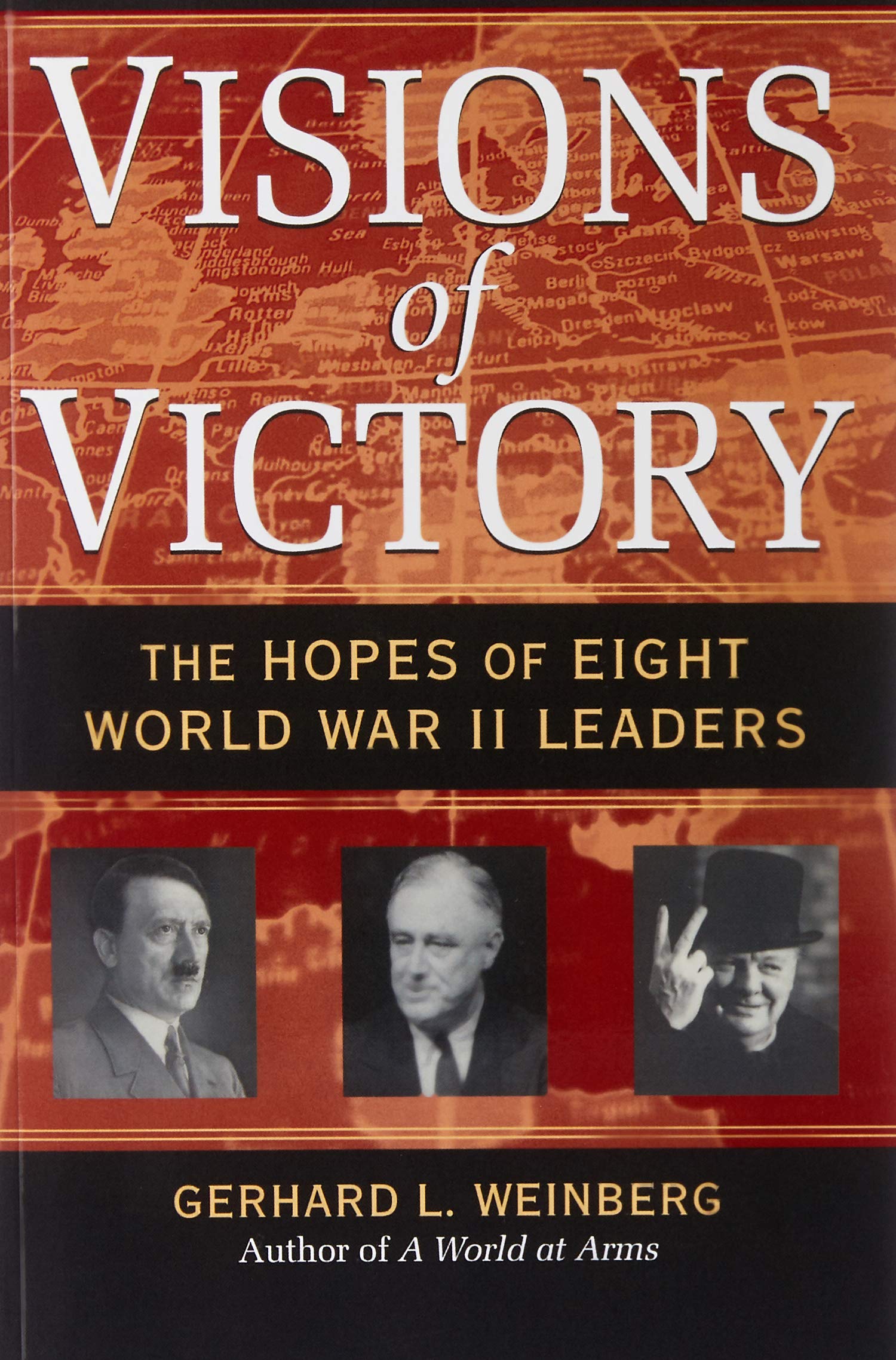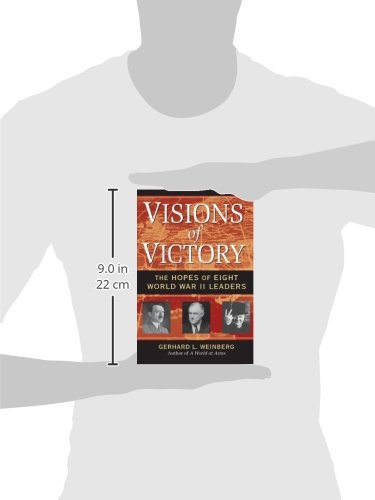Deliver to Croatia
IFor best experience Get the App




Full description not available
J**S
A Different Perspective to understand the WW II
I like books that help to explain and understand the causes, the strategies and the reasoning behind the second world war. In this book the writer tries to explain the minds of the leaders, this is quite a difficult job, it is difficult to draw a line between facts and reasonable conclusions and just pure opinions of the author. I think Mr. Weinberg has done a fine job worth reading.The way it presents the major leaders visions helps understand their strategies, their directives and the way they acted. Some concepts or strategies like Hitler's key concept of a series of wars, in which each one represented an acquisition of resources to be used in the next war, explains his behavior, his decisions. His ethics are clear, and acceptable only if you were with him, there is nothing for any one who cannot be part of his arian concept of superiority. Hitler clearly was rational in his decisions! (If I lived during that period of time I could not have another position, but be his enemy, I would have to enlist with Mr. Roosevelt, the one with a truly civilized and more universal view of power and political organization).Stalin is another character that is very interesting to see his views, probably acceptable to any one who sponsors the communist ideology, and do not believe in the preciosity of an individual human life. The way he behaved, specially from 1939 to 1941 is something that becomes quite rational. It is important to understand that Stalin admired Hitler's way and decisions, for he was also an authoritarian ruler. The only problem he had to face was that Hitler also wanted the Russian territory.Reading each one of the leaders chapter, can give a glimpse on how each leader saw his opportunities in history unfold and how they played their part. Unfortunately for some of the leaders, they did not command the amount of resources they needed to fulfill their views. Fortunately for most of the rest of us(men and women of the world) that was the way it happened.
A**R
Excellent Short Work on What the Big Eight Leaders Hoped to Gain From World War II
This is a excellent work, fully up to Weinberg's usual standard. It is clearly intended for the general reader, and puts an interesting slant on World War II by which one can better understand why the main actors in World War II did what they did. In the vast literature of World War II the goals of the political leaders are usually assumed or left in simplistic terms that are of little use. This work fills the void left by those works.In this work one will learn:That Hitler didn't take the US seriously as a factor until March of 1945, and would have been willing to negotiate an armistice after his failure to defeat the Soviet Union in 1941. He planned to split the Soviet Union with Japan, bring the Scandinavians into his realm as pseudo-aryans, allow Italy hegemony in the Mediterranean, take over central Africa as a colony, and probably govern Britain and France harshly. In the East, the Germans would be the masters overseeing the use of the Slavs as slave laborers. A meritocracy would be built in the Nazi Party replacing the previous ruling class, and three classes would result -- the ruling Nazi Party, the bulk of the Germans as warriors and child-bearers, and the slave or almost slave laborers of sub-humans. Eventually he would build a New World Order to be governed by his meritocracy and policed by German power. Although Weinberg states that Hitler's dreams were not realized in any sense, his general formulation of ruling power formed through public-provate partnerships and an elite meritocracy is clearly making great strides under the guiding hand of the Bilderbergs today. Only Hitler's racial component is missing and the US is the policeman rather than Germany.Mussolini was hopelessly a 19th century imperialist who envisioned Italy as building a greater empire around the Mediterranean than in Roman times. Unlike Hitler, Mussolini was bound to the past.Tojo's aspirations included the eventual control of the entire Western Hemisphere as well as the Pacific and the Far East. Amusingly, islands in the Caribbean like Cuba were to be included in the Greater East Asia Co-Prosperity Sphere, and Hawaii, ALaska, Western Canada and the state of Washington were to become Japanese as were Australia and New Zealand.Chiang Kai-shek was perhaps the most realistic, simply wanting to unite all of China including Manchuria and Formosa under the Kuomintang and eliminate all foreign concessions such as Hong Kong. Korea was to be independent, and the Japanese severely punished for their crimes against the Chinese people.Josef Stalin saw the Soviet Union as the primary power in Asia and Europe with substantial territory acquisitions coming out of the war. Almost all of those acquisitions were realized. Only the gaining of territory in Iran and control of the Bosporus through bases in the Aegean eluded him. Stalin's future intentions were clearly indicated by the fact that he devoted greater resources to spying on the US and Britain than on the Axis powers during the war and that he was more willing to have an alliance with Germany than the West. His behavior toward Germany during the Soviet-German Non-Aggression Treaty period was much more cooperative than toward his allies after 1941.Churchill wanted to restore the British empire to its former grandeur at all costs. He was a rather simple 19th century imperialist, and his wartime strategy reflected that attitude. In this respect De Gaulle was similar, and De Gaulle even expected that France would be compensated after the war with a good deal of German territory (all that on the west bank of the Rhine), some of Italy's Alpine land, and colonial land from Italy in Libya.Roosevelt expected to construct an international body (the United Nations) that would oversee the end to colonialism. As he was against the restoration of the British and French empires, both De Gaulle and Churchill adamently opposed him (but not the UN.) Roosevelt favored accommodating the Soviets with land and influence in Eastern and Central Europe, and felt that the Soviet Union would eventually split apart along ethnic lines. He was willing to do almost anything to get the Soviet Union into the United Nations. (One must remember that Roosevelt was no great intellect and several close advisors were actually Soviet agents.) In the main, Roosevelt's vision was more or less what followed although he had not involved himself in the details.These are just the highlights, and Weinburg develops many more detail attitudes that influenced wartime strategy.This is a work that should be read by all students of World War II, and even by those interested in contemporary politics. The legacy of World War II continues today, and the visions of its leaders are still relevant.I highly recommend this book.
Trustpilot
1 week ago
1 day ago